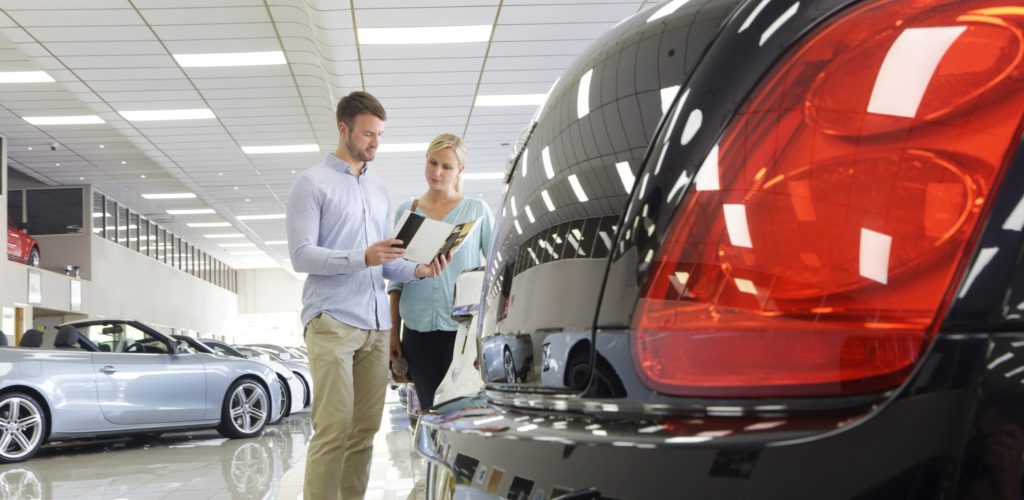German car dealerships should be allowed to reopen, despite rising COVID-19 infections in the country. This is the view of the Federation of Motor Trades and Repairs (ZDK).
The call comes after the German government extended lockdown measures to 18 April, following a sharp rise in infection numbers. This ‘third-wave’ of COVID-19 is being felt across Europe, with France also imposing restrictions on non-essential retail.
Lockdowns are harming the ‘economically important’ automotive industry, argues ZDK president Jürgen Karpinski. ‘We have to prepare for a disastrous automotive year in 2021, and not just in retail,’ he adds. ‘Many livelihoods in the medium-sized, motor-vehicle trade are at stake.’
German dealerships have been closed for three months, hurting new-car registrations in the country. In the first two months of the year, the market is down 25.1%. This has not been helped by an increase in VAT from 16% to 19%. Around 40,000 registrations were pulled forward to December 2020 as a result, Autovista Group estimates. From 8 March, dealers were allowed to reopen, but with restrictions in place. These included infection rates in individual states and the floor area of the showroom. However, these plans have now been pushed back.
Dealers vs hairdressers
The ZDK organised a protest in Berlin to expand its calls for a fair reopening of dealerships in the country. The group highlighted that while a hairdresser, with a floor space of 10m2, is allowed to have one customer, car showrooms with a floor space of 500m2 cannot.
‘Nobody understands why many car dealerships with their large areas still have to remain closed, while 10 square meters per customer are seen as unproblematic for the hairdresser,’ said Karpinski. ’I do not know when the politicians who decide on the lockdown were last in a car dealership. It is urgent that they get an idea of the situation on site.’
While the ZDK acknowledges that everything must be done to stop the spread of COVID-19 and its various mutations, it argues that the automotive retail industry is one of the safest due to the large open areas in dealerships and the relatively low footfall at any one time.
According to the Robert Koch Institute, the ZDK states that the whole retail sector hardly contributes more to the infection rate, coming 13th in a list of 17 infectious locations.
‘It is therefore obvious that this risk is practically zero in our operations,’ says Karpinski. ’That is why we are calling for a resounding yes to the nationwide reopening of all car dealerships from the next Coronavirus summit.’
Physical sales
While the industry is maintaining its sales so far, the spring period is generally a busy one for the German automotive industry. The ZDK argues that 90% of sales are made physically and not online. According to results of a snap poll conducted among 2,000 car dealerships, incoming orders during January and February had plummeted by up to 60%.
There is, therefore, a concern that the ongoing closures and restrictions could lead to some smaller dealerships facing financial issues and possibly bankruptcy. ‘We cannot and must not wait until the bankruptcy wave rolls around, added Karpinski. ‘Politicians must show ways of action and must no longer shut our country down.’
However, the ZDK has offered a solution that may benefit car dealers and the country itself. By offering rapid testing and track-and-trace opportunities, showrooms could help to identify cases, reducing the overall spread of COVID-19.
Around Europe
In March 2020, during the first European lockdown, vehicle registrations saw massive drops, continuingfor the following two months. Since then, sales have recovered somewhat -Autovista Group forecasts that the big four markets together with the UK will see increases compared to last year, but not to 2019 levels.
In France, Paris and 15 other regions have reintroduced lockdowns to battle a new surge in COVID-19 cases, including the closure of non-essential retail for at least four weeks. However, dealerships can remain open, but only for customers who have booked an appointment.
The UK, which has seen a considerable decline in case numbers till now will not allow car showrooms to reopen until 12 April at the earliest. This means the industry will miss out on registrations in March, one of its most popular months, as new registration plates are introduced.

 Schließen
Schließen